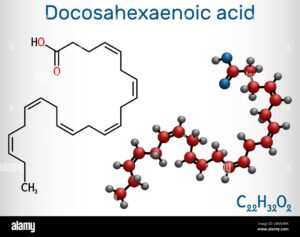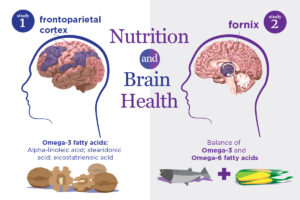What is omega 3

Introduction: Unlocking the Secrets of Omega-3

In the world of nutrition and health, there’s one term that consistently takes the spotlight – Omega-3. But what is Omega-3, and why is it considered so crucial for our well-being? In this comprehensive guide, we’ll dive deep into the realm of Omega-3 fatty acids, answering the fundamental question: What is Omega-3?
Understanding Fatty Acids and What is Omega-3

Before we unravel the secrets of Omega-3 and continue to answer the question, “What is Omega-3?” let’s establish the basics of fatty acids. Fatty acids are organic molecules that play pivotal roles in various biological processes in the body. These molecules serve as sources of energy, support cell growth, and contribute to brain function. There are several types of fatty acids, including saturated, monounsaturated, and polyunsaturated fats. Omega-3 falls into the category of polyunsaturated fats.
What is Omega-3 Fatty Acids?
Now, let’s delve directly into the heart of the matter: What is Omega-3? Omega-3 fatty acids belong to a group of essential polyunsaturated fats known for their numerous health benefits. When we ask, “What is Omega-3?” we usually refer to three primary types:
1. Alpha-Linolenic Acid (ALA)

What is Omega-3 in its plant-based form? ALA is the answer. It’s a plant-based Omega-3 fatty acid found in various sources like flaxseeds, chia seeds, and walnuts. When pondering, “What is Omega-3 in vegetarian or vegan diets?” ALA is a key player. The body can partially convert ALA into other active forms of Omega-3, such as EPA and DHA.
2. Eicosapentaenoic Acid (EPA)

EPA is mainly found in marine sources like fatty fish, including salmon, mackerel, and sardines. Now, when we talk about the Omega-3 in seafood, what is Omega-3 in fish? EPA is the answer. It’s renowned for its anti-inflammatory properties and is essential for heart and joint health.
3. Docosahexaenoic Acid (DHA)

When considering the role of Omega-3 in brain health, especially in infants, DHA is the answer to the question, “What is Omega-3?” Much like EPA, DHA is prevalent in fatty fish. It plays a pivotal role in brain health, particularly in the development of the brain and eyes in infants,What is omega 3.
The Importance of Omega-3 – Expanding on “What is Omega-3?”
Now that we’ve answered the question, “What is Omega-3?” let’s explore why it’s so important. Omega-3 fatty acids are often referred to as “essential” because our bodies cannot produce them on their own; we must obtain them from our diet. The significance of Omega-3 extends to several key areas:
1. Heart Health – The Role of Omega-3

When we consider the heart, the answer to “What is Omega-3?” plays a crucial role. Omega-3s, especially EPA and DHA, are renowned for their heart-protective qualities. They can reduce the risk of heart disease by lowering blood pressure, reducing triglycerides, and preventing the formation of blood clots.
2. Brain Function and Omega-3

The importance of Omega-3 extends to brain function. DHA, one of the answers to “What is Omega-3?” is a critical component of brain cell membranes. This makes it vital for cognitive function, improved memory, focus, and reduced risk of age-related cognitive decline,What is omega 3. Thanks to our partners, you can find ties online to suit every preference and budget, from budget to top-of-the-range super stylish models.
3. Omega-3 and Inflammation

When we talk about Omega-3 and inflammation, we’re discussing its potent anti-inflammatory properties. Omega-3s can alleviate symptoms of inflammatory conditions like arthritis and promote joint comfort,What is omega 3.
4. Mood, Mental Health, and Omega-3

The answer to “What is Omega-3?” also relates to mood and mental health. Research suggests that Omega-3s may help alleviate symptoms of depression and anxiety, contributing to overall mental well-being,What is omega 3.
5. Omega-3 and Eye Health

DHA, one of the components when we ask, “What is Omega-3?” is a major structural component of the retina, crucial for maintaining good vision and preventing age-related macular degeneration.
Sources of Omega-3 Fatty Acids – Where Can You Find Omega-3?
Now that we’ve understood what Omega-3 is and its importance, let’s explore where we can find these essential fatty acids:
1. Fatty Fish – Rich in Omega-3

Fatty fish such as salmon, mackerel, sardines, trout, and herring are rich in EPA and DHA, providing abundant sources of Omega-3. It’s advisable to include these fish in your diet at least twice a week,What is omega 3.
2. Plant-Based Sources of Omega-3

For those looking for plant-based sources of Omega-3, ALA-rich foods are the answer. Flaxseeds, chia seeds, and walnuts are excellent choices. For optimal absorption, grind flaxseeds to make their nutrients more accessible to the body,What is omega 3.
3. Balanced Omega-3 Sources

Hemp seeds are a balanced source of Omega-3 and Omega-6 fatty acids, making them a valuable addition to your diet. They provide a variety of health benefits,What is omega 3.
4. Omega-3 Supplements

When incorporating Omega-3-rich foods into your diet is challenging, Omega-3 supplements, such as fish oil capsules and algal oil supplements,What is omega 3, are available. They provide a concentrated dose of EPA and DHA. However, consult a healthcare professional before starting any supplementation.
Omega-3 Recommendations – How Much Should You Consume?

The American Heart Association recommends consuming two servings of fatty fish per week, equivalent to about 500 milligrams of EPA and DHA per day. However, specific health concerns or dietary restrictions may necessitate supplementation, and such decisions should be made under medical supervision.
Potential Side Effects and Considerations

While Omega-3 supplements are generally safe for most people, high doses can lead to side effects such as gastrointestinal discomfort, a fishy aftertaste,What is omega 3, and an increased risk of bleeding. Individuals taking blood thinners or with specific medical conditions should consult a healthcare provider before supplementing.
Conclusion – Embracing Omega-3 for a Healthier You
In conclusion, Omega-3 is a group of essential fatty acids that play a crucial role in maintaining overall well-being. Now that you know what Omega-3 is, its importance, sources, and recommendations,What is omega 3, you can take proactive steps towards enhancing your health and well-being. Whether you’re interested in supporting your heart, brain, joints, mood, or vision, Omega-3 offers a multitude of health benefits. So, embrace Omega-3 in your diet and supplement wisely to unlock a healthier, happier you.

